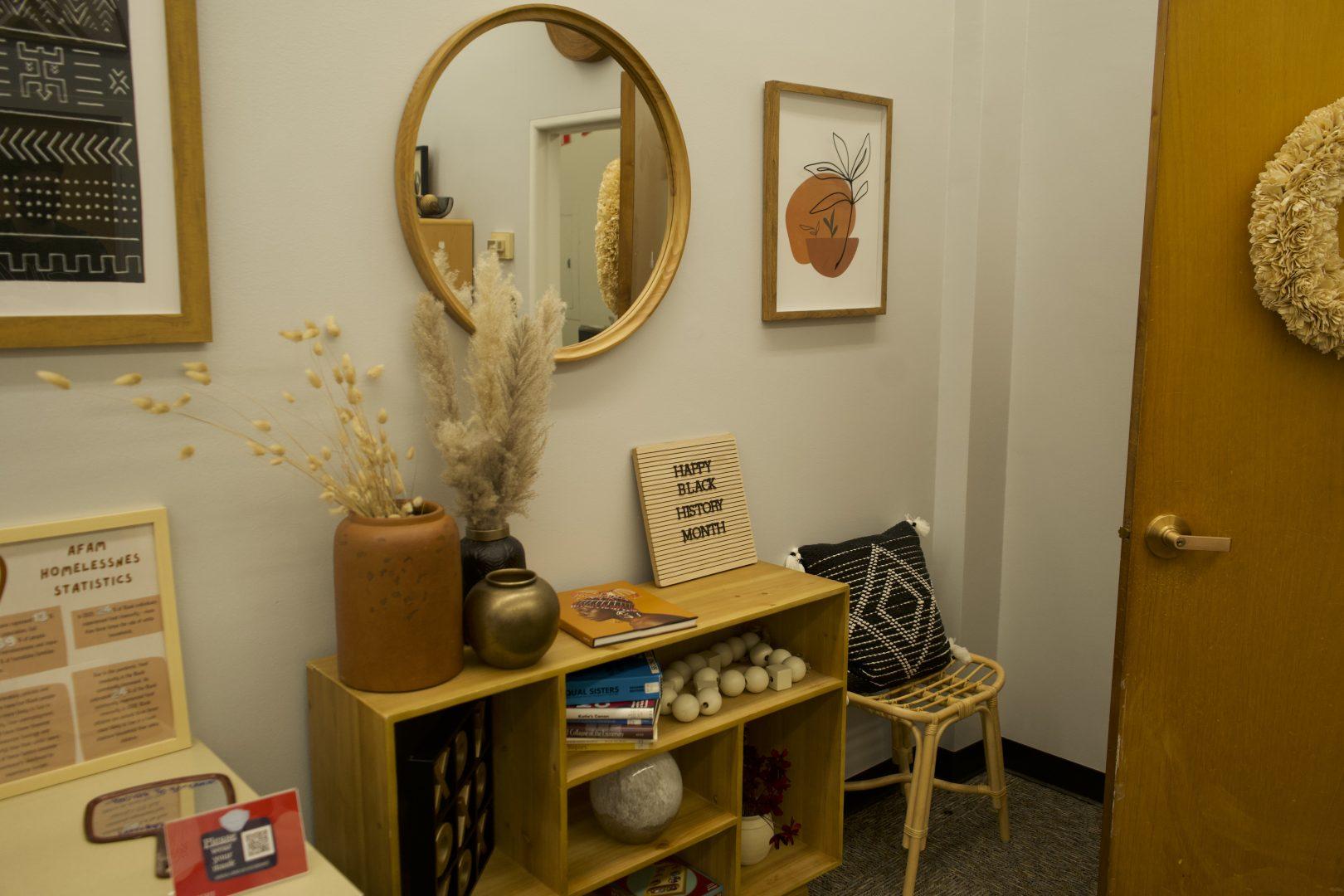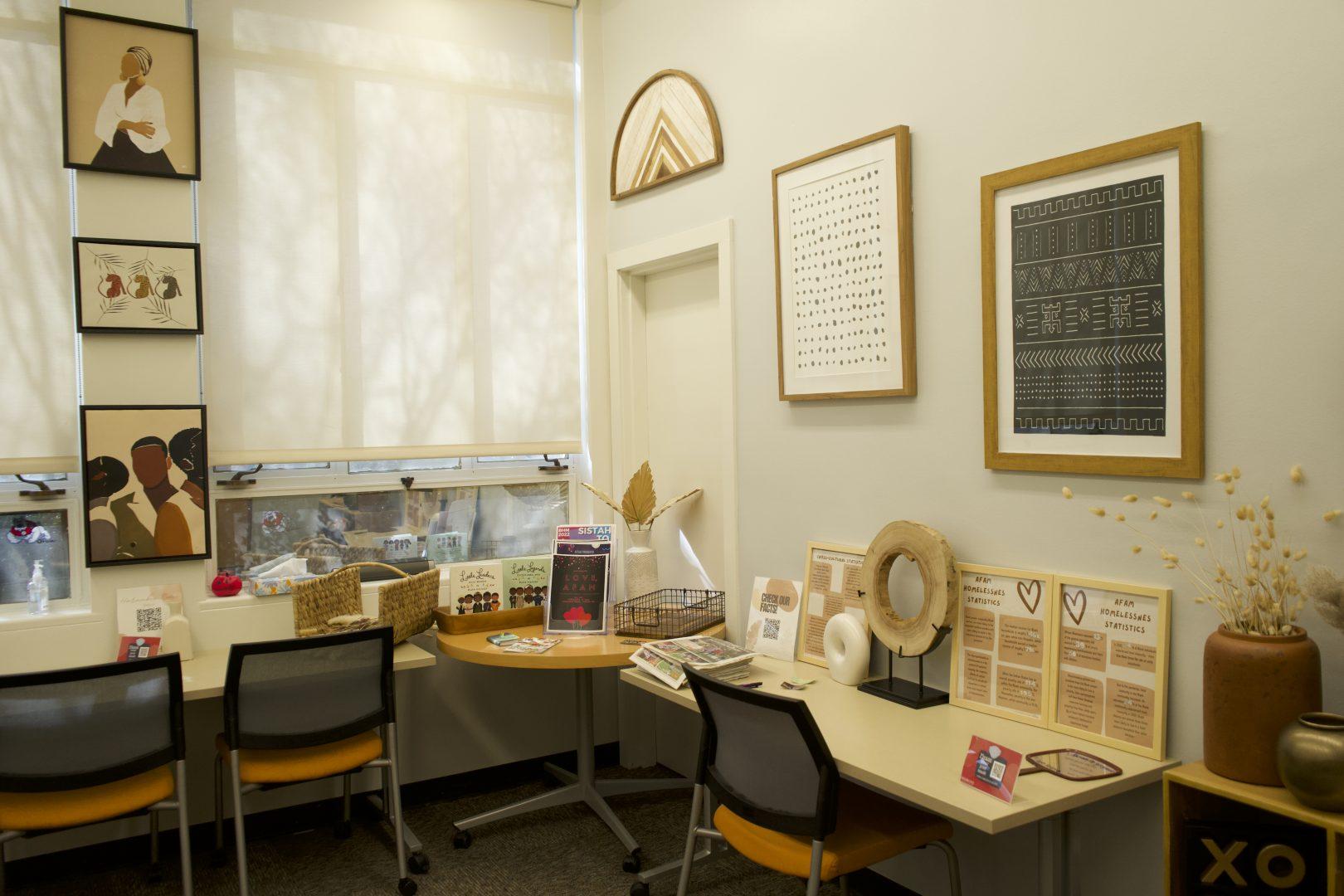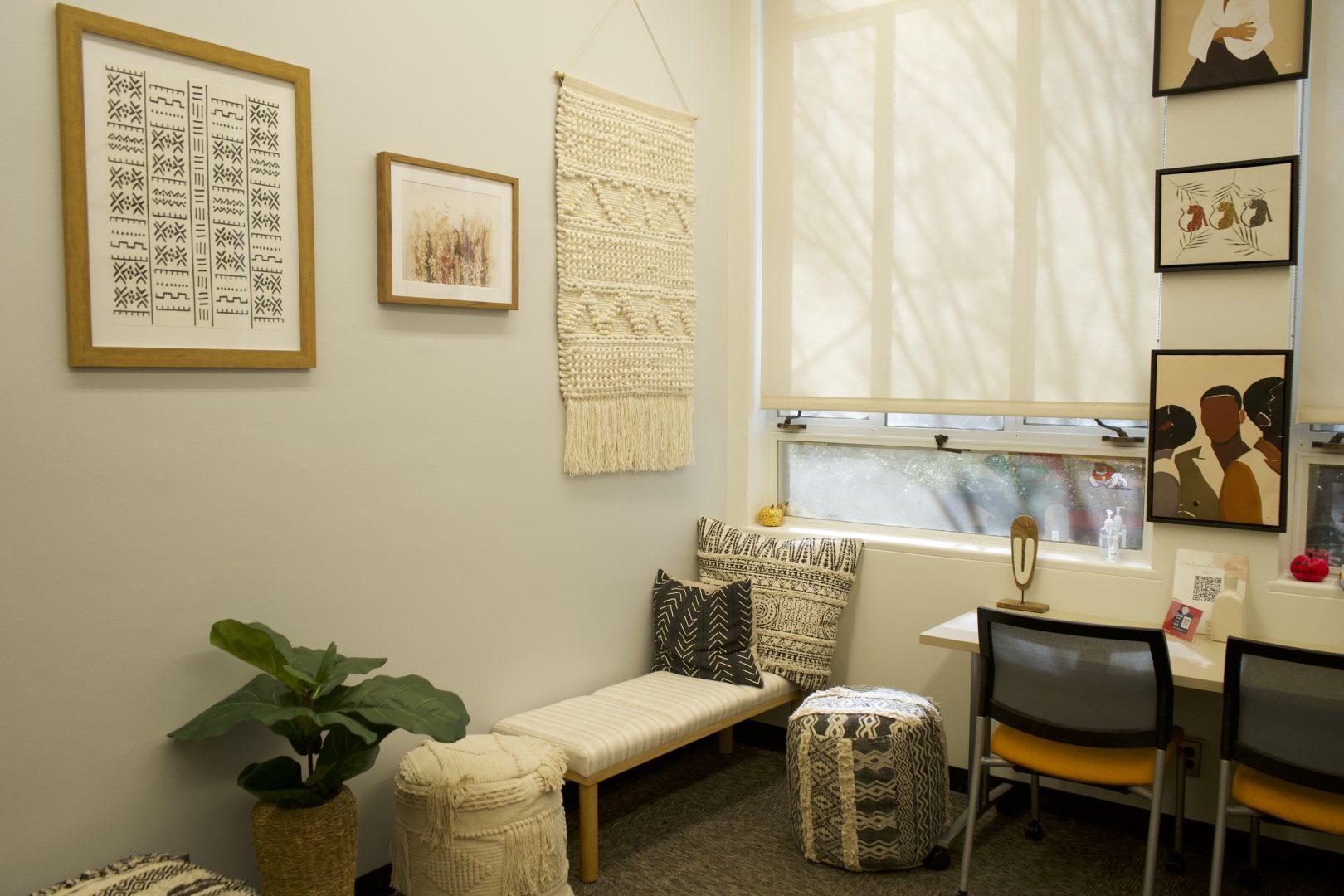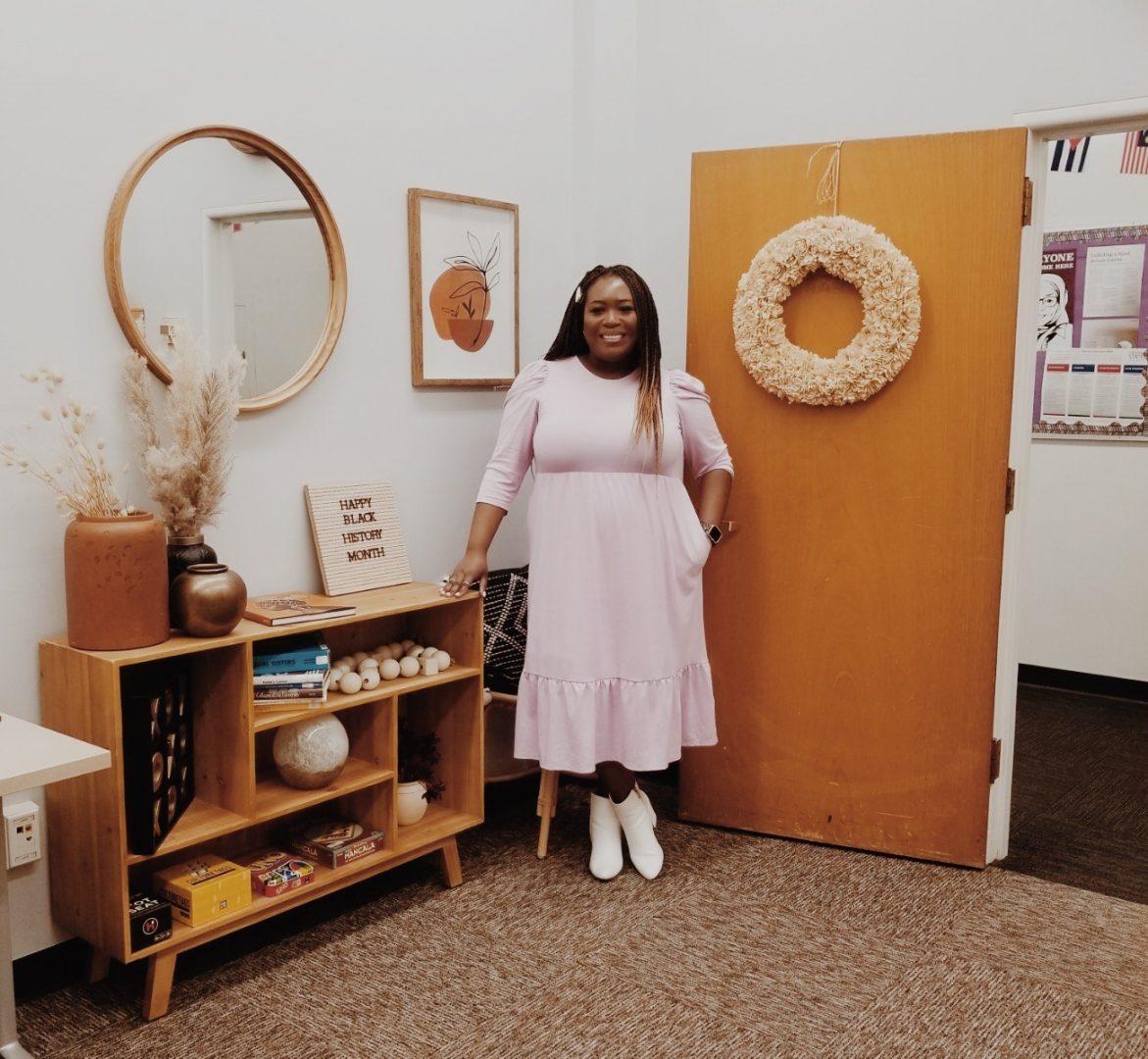After working six years for Fresno State and the African American Programs and Services (AFAM) and Leadership Programs and Services, Brianna White had her final day as program coordinator on Feb. 11.
Before her departure from the university, White reflected on her proudest memories as coordinator, one of them being the Sistah to Sistah program.
Hosted in the Harambee room, located in room 109 of the Thomas building, Sistah to Sistah is a discussion group that meets bi-weekly on Wednesdays as a safe space for Black and African-American women.
“I think the goal of Sistah to Sistah is to really maintain that sisterhood bond and that trust and that respect as Black women. We want to continue to lift each other up and encourage each other and be there for each other,” White said.
She started as interim coordinator from August to December 2019, and then became the permanent program coordinator in November 2020, during the middle of the pandemic.
White remembered that during her first year in-person the Harambee room in Thomas 109 was so full of students they were sitting on the ground because they ran out of chairs. She said students would go beyond meeting time to have in-depth conversations or just talk about things happening in their day.
One of her favorite meetings was in October 2019, when they painted pumpkins for fall.
“It was so cute to just, like, see all the different designs and everything. And then just to, like, laugh and talk. I think we were talking about a lot of things going on. Well, that day we talked about cultural appropriation and interracial relationships,” White said
Marisa Williams, a Fresno State junior and student coordinator for Sistah to Sistah, said that was the first meeting she ever went to.
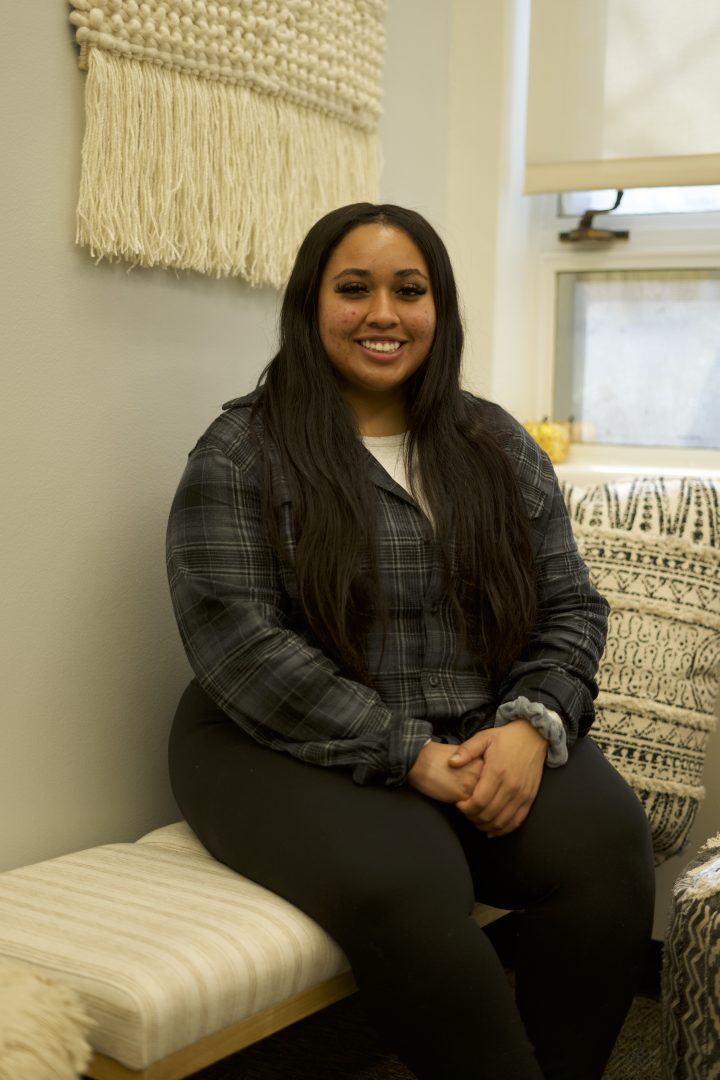
“I remember there were… like 10 girls in there and it was so fun. It was a little powwow,” Williams said.
She said she will continue to plan and coordinate the Sistah to Sistah events after White’s departure. White said Williams was like her right-hand person, and both of them built off of each other to grow the program.
White said Williams was a “blessing” to have, especially when the programs started to have their meetings virtually, White said.
“It’s very hard to connect virtually. And there’s also a lot of burnout and fatigue when we’re going through a pandemic,” White said.
“It was, like, we need to rebuild more of a rapport with our Black students because so much was lost. So much was lost, and we have to relearn the campus again.”
Williams said more effort needs to be made to attract students back to in-person events now that the campus is open again. She joined the program last semester, and although White is leaving, Williams said it’d feel like an “injustice to my peers and to myself” if she left.
The goal is to make sure everyone knows what the program is about, White added.
“It’s important that our Black students know that they have a space because there is this sentiment on campus of needing a place of belonging, for sure,” White said. “And I know that we provide those spaces. Absolutely. But then, [we] also want to be a safe space for allies or friends, for family members, or spouses and partners.”
White said the ladies that do attend are able to be vulnerable and open to share anything, be it about relationships, friendships or family, so it’s helpful to have multiple perspectives.
“[Sistah to Sistah] is designed for a safe space for black women to process, but we welcome any and everyone. And we have a number of students from all backgrounds and ethnic ethnicities that attended. It’s not just students, it’s staff too, which is really exciting,” White said.
